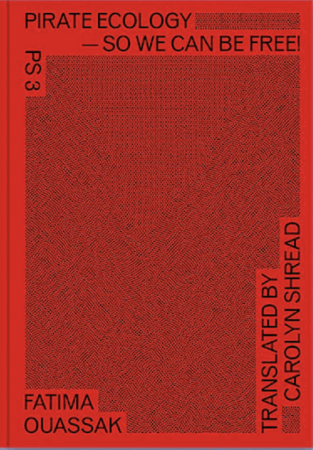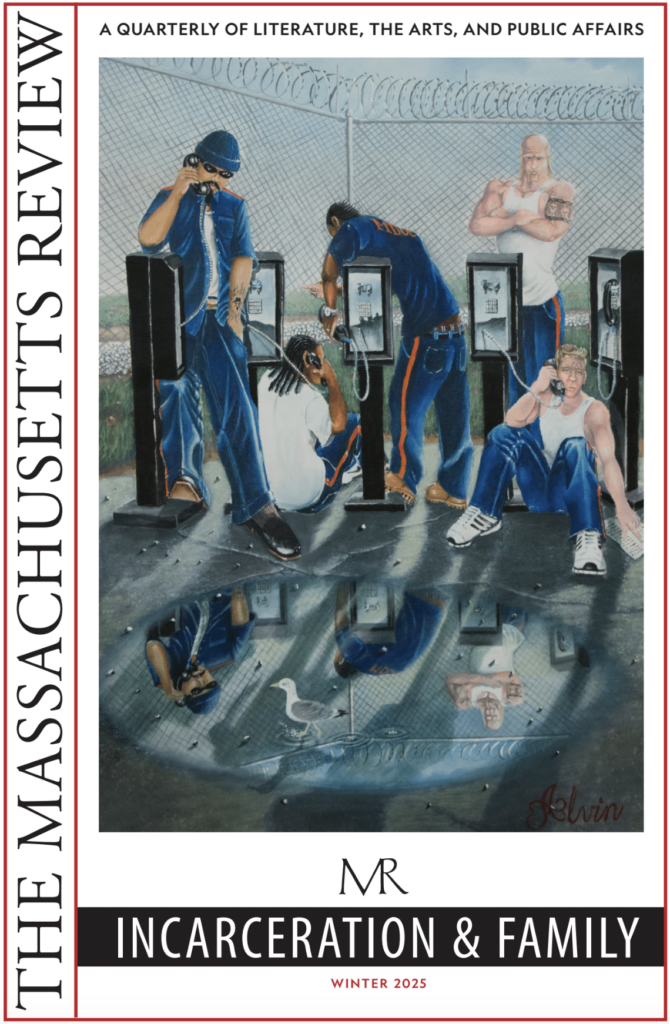Algeria, Plogoff, Palestine

Translator’s Note: The French adjective populaire, used here to qualify quartier (neighborhood, area, district, ward),is a translation conundrum. Not to be confused with “popular,” populaire is often translated as “working class,” but the Marxist overtones of this term are misleading, erasing the way the term has morphed into a racial euphemism to refer to people living in tower blocks outside big metropoles. In this context, populaire signals second-, third-, fourth-generation immigrants sequestered from their French citizenship—treated as inhabitants, not residents, since their status is constantly questioned.
In France, quartier populaire readily evokes the “93,” that is, an administrative department on the outskirts of Paris whose postcodes begin with the numerals 93. In the Introduction, I used various terms to translate populaire—poor, impoverished, underclass, underserved, excluded class, low-resourced, grassroots, marginalized, disenfranchised—fanning across a range of valences. However, although it advances the broader meaning of the text outside its specific context, this translation strategy dissipates the rhetorical effect of Ouassak’s insistent repetition of quartiers populaires. A French reader knows that this text speaks from the distinctive viewpoint of the quartiers populaires and that it is unique and fresh precisely because this voice is constantly repressed, excluded, and silenced by mainstream and dominant discourses.
To retain the specifically French reality Ouassak is addressing, I opt against any attempt to establish an equivalence with, for instance, living on or off the estate in distinctly British council housing, or alternatively, public housing projects or, perhaps neighbor/hoods, in the United States. Quartiers populaires include both state subsidised housing and cheap housing attracting low-income communities.
After the Introduction, for the rest of the book I use neologisms to convey and reinforce an important distinction Ouassak establishes between quartiers populaires, “the pops,” and quartiers pavillonaires, “the pavs.” A pavillon is a detached house—a step up, or off, the tower block that typifies the post-war quartiers populaires. In this vein, “the pop” echoes the p-oppression that defines this relationship of a dominated underclass, while “pav” rhymes with “have,” echoing the distinction between the “haves and the have-nots” that reflects the inequity the author is highlighting either side of the impassable wall.
An excerpt from Pirate Ecology – So We Can Be Free!
True—if we go looking for fights to protect the land among inhabitants of the pops, as well as their parents and grandparents, we won’t find much. But if we consider that the key environmental struggles are struggles to liberate land, then some of the most glorious are without doubt African. Actually, environmental struggles that are the heritage of the pops date back to anticolonial struggles. Let’s reconnect with these freedom fights – the very ones they’d like us to forget, the fights we must live in our present day, in our fights for freedom now.
Three key environmental struggles: Algeria, Plogoff, Palestine
Algeria, 1830: a child wanders down the steps of the Casbah until they reach the sea. The water is luminous, reflecting the dazzling white of the city. It’s the most beautiful place in the world. The child is free to contemplate, feel, listen to the sea for hours. Then colonial France arrives and for the colonizers, the narrow alleys of the Casbah are dangerous and uncontrollable. They need room for the flood of colonial settlers. Colonial France builds new districts right on the seafront, amputating the Casbah from the sea, walling it in. Now, a thousand impassable walls stop the child from reaching the shore. No more contemplation. Colonial France stole the sea from the child. The child is ungrounded.
But the Algerian people rose up to liberate the despoiled land. They took back the sea, claiming freedom and equal human dignity. They fought for 132 years, until they eventually won their war of liberation in 1962. Colonial France left Algeria, leaving behind a wounded land. Of course, this didn’t stop France from continuing to use Algeria for its nuclear tests until 1966, which shows the extent to which African land is still considered a sub-land; a sub-land that can be contaminated for thousands of years since its inhabitants cannot protest. This scorn for the land is not limited to Africa; sometimes it also affects France—for instance, in Plogoff, where French nuclear power sought to appropriate Breton land.
Plogoff, 1976: a child wanders along the shoreline, contemplating the wild and terrifying sea crashing against the rocks. It’s the most beautiful place in the world. The child is free. But then the French state shows up and the child hears them announce they will set up their nuclear power station right here. The child hears them whispering that the people living in Plogoff are so backwards and stupid they don’t understand a thing about the technological and political stakes of modernisation and won’t even try to contest the decision. The child cries, afraid of the battalions of experts sent by the all-powerful state to build a thousand impassable walls and steal the sea from children.
But the people who live in Plogoff rise up to protect this coveted land. Women, armed with catapults and driven by their bond with their land, hurl stones at the state. They are the ones who push the French state to send in the squadrons of paratroopers—the same who previously tried to subdue the resistance in Africa, and who do not hesitate to make use of force this time either. But the determined women fight to the end so that their children are not ungrounded. They also manage to take back the sea and convince the French state; the project for the nuclear power station was abandoned in 1981. Plogoff won. The stones thrown by the Breton people beat the troops’ canons.
Palestine, today: With shining eyes, the child says: My greatest dream is to see the sea. Blocked by a thousand impassable walls, the child has never seen it, but knows it is the most beautiful place in the world and that the Israeli colonial state stole it from children, leaving them ungrounded. Armed with a catapult, the child aims rocks at the Israeli colonial army occupying their land since the Nakba. There’s no doubt it takes a good dose of courage to stand up to a colonial state that has no hesitation in imprisoning, torturing, and killing children.
The Palestinian people rose up to liberate the despoiled land. For the child to reclaim their land, to moor themselves to their ground, and move freely. More than anywhere else, in Palestine the crushing shame of hogra is deployed with the greatest ferocity, piling up humiliations to annihilate an entire people. But it’s also in Palestine that the fight against humiliation and for freedom has been the most sustained. And that’s why for decades in the pops in France and all round the world you hear the chant: Sowers of hogra reap intifada.
It’s because we are descendants of struggles for the liberation of land that the fight for the liberation of Palestine is so important in the pops in France and for the descendants of postcolonial immigration in Europe. This fight is important to the point that resistance to Israeli settler colonisation is always supported. Despite the passing years, our heritage and anti-colonial faith is the root of our tireless chant: Algeria won, Palestine will win.
While the anticolonial freedom fights in Algeria, Plogoff, and Palestine are key references in environmental struggles, there are many others that have taken place around the world; they must also be told. Fights for a place, for human dignity linked to the land and to Earth, fights to put an end to itinerancy, to move freely, to be free. These are the struggles to pirate ecology—freedom fights so that children can finally see the sea and be free.
You can preorder the forthcoming publication, Pirate Ecology – So We Can Be Free!, published by K. Verlag, here. Originally published in French by Éditions La Découverte as Pour une écologie pirate : Et nous serons libres, the English translation has been funded by the Institut Français de Berlin.
Fatima Ouassak is a French environmentalist, feminist and anti-racist activist of Moroccan origin who works as an essayist, speaker and public policy consultant. She is co-founder of the Front de Mères collective, a parents‘ union in working-class neighborhoods, as well as Verdragon, the first working-class environmental center in France established in Bagnolet, Seine-Saint-Denis in 2021. Her book La puissance des mères [mother power] received thePrix de l‘essai féministe Causette in 2021. Pour une écologie pirate, et nous serons libres was originally published by Éditions La Découverte in 2023.
Carolyn Shread is Senior Lecturer in French at Mount Holyoke College and teaches translation at Smith College, in Massachusetts, USA. She has translated some fifteen books into English, of which seven by philosopher Catherine Malabou. She has a longstanding interest in Haitian Studies and in Translation Studies, in which she has published scholarly articles on feminist, decolonial, and eco translation. She is on the advisory board of the Nida FUSP Centre for Advanced Research in Translation and is a member of the Eco-Translation Network.



